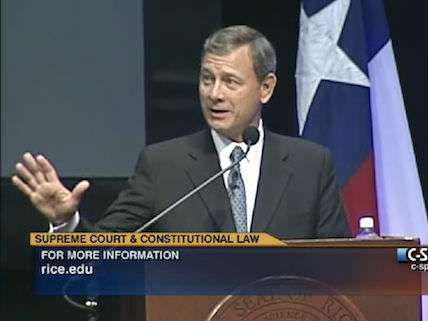SCOTUS Blasts Prosecution for Racial Bias in Death Penalty Jury Selection Case
The U.S. Supreme Court issues its decision in Foster v. Chatman.

Today the U.S. Supreme Court ruled in favor of a Georgia death row inmate who charged the prosecutors in his case with illegal racial discrimination against prospective black jurors during the jury selection process. "Prosecutors were motivated in substantial part by race," Chief Justice John Roberts wrote for the majority in Foster v. Chatman. "Two peremptory strikes on the basis of race are two more than the Constitution allows."
At issue in Foster v. Chatman is the murder conviction and subsequent death sentence handed down in 1987 to a Georgia man named Timothy Tyrone Foster. During Foster's original trial the prosecutors used peremptory strikes to eliminate all prospective black jurors, resulting in an all-white jury that ultimately sentenced Foster, a black defendant, to death. In 2006, thanks to a Georgia Open Records request, Foster's attorneys obtained jury selection notes from the prosecutor's office from that trial. Among other things, those notes featured the names of all prospective black jurors highlighted in green and marked with a "B." The notes also contained a list of names under the header "Definite NOs." That list included the names of all prospective black jurors.
Such evidence was more than enough to convince a majority of the Supreme Court that the Georgia prosecutors had crossed the line. "The focus on race in the prosecution's file plainly demonstrates a concerted effort to keep black prospective jurors off the jury," Chief Justice Roberts ruled today.
Writing alone in dissent, Justice Clarence Thomas raised two principal objections to the majority opinion. First, as a threshold matter, Thomas argued, the Court lacked jurisdiction to hear the case because Foster's petition was barred from moving forward by Georgia law. Turning then to the merits, Thomas argued the Court should have shown more deference to the prosecution. "Foster's new evidence does not justify this court's reassessment of who was telling the truth nearly three decades removed from voir dire," Thomas declared.
The Supreme Court's opinion in Foster v. Chatman is available here.


Show Comments (72)